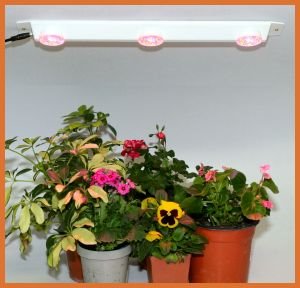A step in the direction of LED Grow Lights for Plants.
York-based Lumidrives and the University of Manchester are to develop technology for next-generation LED lighting modules in a £330,000 project part-funded by the DTI.
“Manchester has a lot of knowledge of power electronics in extreme environments and heatsinking,” Lumidrives’ managing director Gordon Routledge said.
“The concept may sound trivial, but our five years’ experience in the LED lighting industry shows that the thermal requirements of LED devices represent the biggest challenge in most applications for general lighting,” he said.
Street lighting has been chosen as the target application. “You have to generate over 12,000lm from 240V,” said Routledge. “The obvious thing is to have a big heatsink on the top of the light, but when you start to think about it, you realise muck from birds will soon choke it up. It is a complex problem which may require heat pipes and all sorts of novel methods.”
Dr Roger Shuttleworth from the university’s power conversion group is just setting up the Manchester research. “We will be making a general-purpose light engine. Reliability is an issue, so is heat,” he says. “We may have to think of technologies like heat pumps to control it. And if we are powering it off the mains we will probably need a power supply with a unity power factor.”
Over 50,000 hours - 10 years - is the life target. Older ‘yellow’ street lighting uses low-pressure sodium lamps which are some of the most efficient sources available, between 150 and 300lm/W.
In the past decade or so there has been a move to replace these with whiter, more aesthetically pleasing but less efficient (85lm/W) high-pressure sodium lamps. White LEDs are currently on sale at 70lm/W and are on track for 150lm/W and 400lm/W in the near future.
Lumidrives high power LEDs for general lighting
LED Grow Light Labels: general illumination, led lighting, lumidrives, solid state lighting
Subscribe to:
Post Comments (Atom)




No comments:
Post a Comment